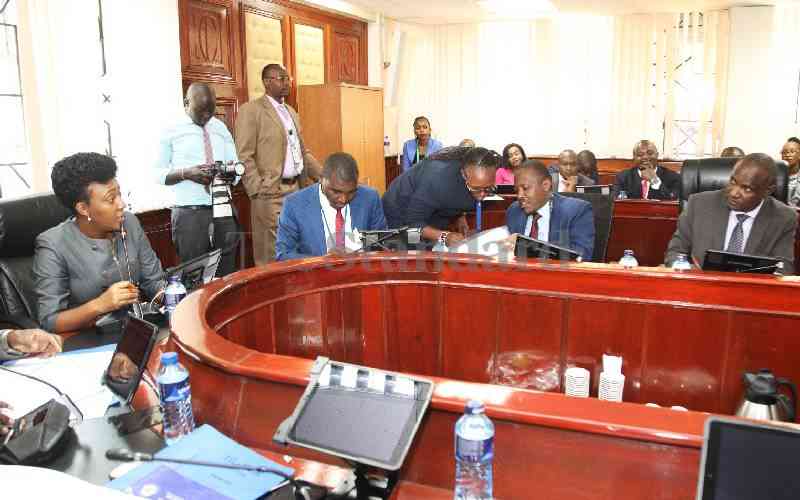×
The Standard e-Paper
Stay Informed, Even Offline

Counties may wait longer to get their shareable revenue, with the Senate insisting that they should get Sh 400 billion as the National Treasury sticks with Sh 380 billion
Treasury Cabinet Secretary John Mbadi had a difficult time explaining to the Senate Finance and Budget Committee why the government would give counties Sh20 billion less than the figure arrived at after a mediation process between members of the Senate and National Assembly.